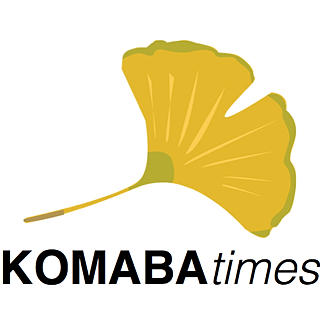Todai's Very Own Movie Premiere
- Komaba Times
- Jan 4, 2017
- 2 min read
Updated: Oct 10, 2019
By RONGXUAN TAN

Participants and teacher-in-charge of the workshop
Although there was no red carpet and no flashing cameras, there was a sizeable crowd of students and professors as some of Todai’s student film-makers presented their very own self-directed and self-produced documentaries. The screening of the two documentaries was the culmination of seven months of hard work by a group of six students, who – other than one person – have had no prior experience in film production.
These six students were specially selected after a rigorous application process to participate in the film production workshop. As part of this workshop, the students not only planned, directed, and produced a twenty-minute documentary all on their own; they also went to Los Angeles to conduct the necessary interviews and to film.
Since for the majority of the students this was an entirely new experience, they had to learn from scratch how to go about making a video. “Most of the skills required to produce a film, for example cinematography and editing, was self-taught. We watched videos, which were very helpful,” explained one of the participants in this workshop. Beyond the technical skills, the students also gained other valuable experience. “We learnt a lot from filming the documentary,” said one student. “My group interviewed some Japanese-American couples to see how they split the housework and child-raising, and we realised that the situation was more complex in America than we initially assumed”.
The documentaries are titled ‘Gender Roles: Who Should Raise the Child’ and ‘The Timeliner – LA Theaters’. Gender Roles gave the audience a look into three Japanese-Americans households in Los Angeles, focusing on how the husband and wife divide household chores and child-raising duties. This documentary was created in response to the gender ‘problem’ in Japan, and to get people to think about childcare. This documentary successfully went beyond simply criticising the ‘Japanese way’ and praising the ‘American way’ and holding it up as the ideal for Japanese parents. Instead, it reflected the complexity and difficulty of reality, and the issues brought up by the families interviewed – those that they had to navigate when deciding how to split the job, and those that they are facing now – are what many couples, not only in America or Japan but around the world, are also dealing with or will have to deal with.
The Timeliner – LA Theatres explored the movie culture in Los Angeles – the home of the U.S. film industry and Hollywood – and showed viewers a cinema, movie-going culture that is vastly different from those in Japan. Movie theatres, or rather, palaces, are grand architectures, built in an attempt to elevate movies to an art form and movie-going to a cultural experience, much like the opera. Instead of multiplexes showing digital films, there are still many single screen cinemas showing films on film. Through interviews with managers of cinemas and movie-goers themselves, this documentary delved into the history, the decline, but also the innovation of movie theatres in Los Angeles in response to competition from YouTube and other streaming sites.





Comments